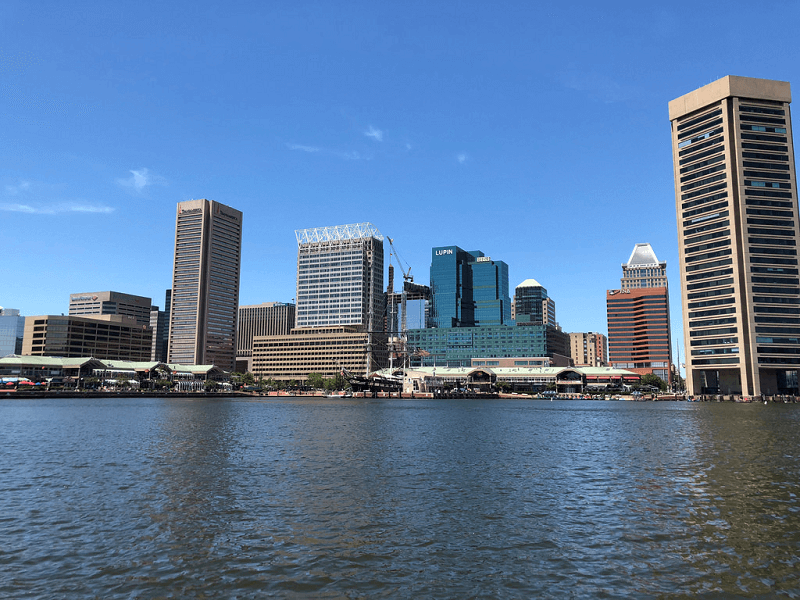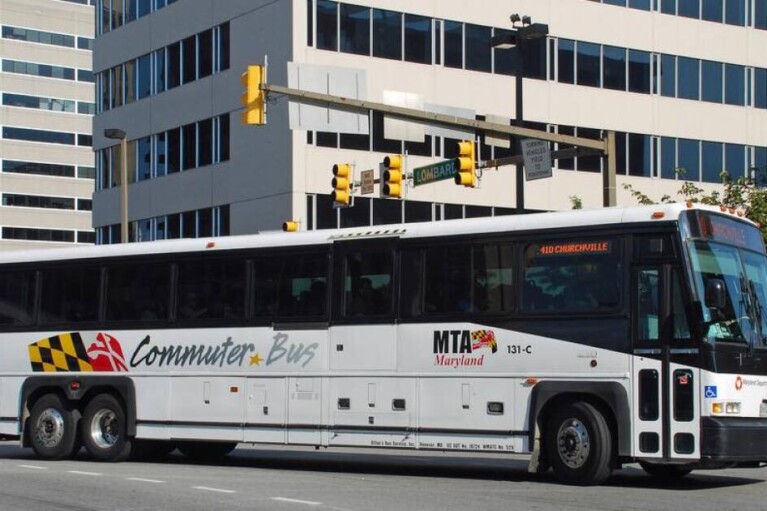Opinion: Baltimore Is Leading the Fight to Hold Big Oil Accountable for Climate Change

One day before President-elect Biden takes the oath of office, the U.S. Supreme Court will hear arguments in a lawsuit from the City of Baltimore that could help determine
whether or not the companies most responsible for our accelerating climate crisis are finally held to account.
Baltimore is suing some of the world’s largest oil and gas companies to hold them accountable for their leading role in deceiving the public about catastrophic climate change impacts they knew decades ago their products would cause.
Faced with spiraling costs to survive and adapt to growing climate damages like sea-level rise and heat waves, the city argues that climate polluters including Exxon, BP, Chevron, and Shell should pay their fair share so that taxpayers aren’t left holding the bill alone.
While the specific procedural question before the justices in Baltimore’s case is very narrow, it’s the first time the Supreme Court will consider one of the more than 20 similar climate accountability lawsuits from states and municipalities across the country desperately searching for ways to pay for the rising cost of climate change.
A new report from the National Oceanic and Atmospheric Administration, for example, found that U.S. climate disasters, including historic wildfire and hurricane seasons,
caused almost $100 billion in damage in 2020, double the amount from 2019.
These worsening catastrophes are no surprise to the fossil fuel companies that are now defendants in Baltimore’s lawsuit. Decades ago, their own scientists knew and warned
executives that the emissions created by their products would cause “potentially catastrophic events,” to cite just one internal 1982 Exxon report, which also recognized
that “major reductions in fossil fuel combustion” would be required to stave off global warming.
But instead of sharing that knowledge and helping to lead the global transition away from fossil fuels, the oil industry embarked on what Baltimore officials have called a
“decades-long campaign of deception” to confuse the public and policymakers about the massive threats they created. Their goal was simple: to block climate action in order to
protect their profits.
“Exxon was publicly promoting views that its own scientists knew were wrong,” Dr. Martin Hoffert, a former Exxon scientist, told members of Congress in 2019 during the
first-ever Capitol Hill hearing about the oil industry’s history of climate denial, which was chaired by Maryland Congressman Jamie Raskin.
Big Oil took a page from Big Tobacco’s playbook, spreading disinformation about the harms they knew their products caused. Meanwhile, Exxon, Shell, and others took steps
to protect their own assets against rising seas and other impacts, leaving the rest of us to pay the price for their actions.
It is not hyperbole to say that without the oil industry’s efforts to sow doubt about climate science and create political opposition to climate action, governments could have taken action much sooner and averted the worsening climate scenarios we currently face.
With such a long paper trail of damning evidence showing that these companies knew and lied about climate change, and are responsible for the vast majority of historical
greenhouse gas emissions, it’s understandable that they are terrified of Baltimore’s lawsuit.
For years, Big Oil has used every procedural tactic at their disposal to escape accountability and delay the people of Baltimore from having their day in court. After lower courts twice rejected Big Oil’s arguments to kick Baltimore’s case out of state court, the oil companies are now turning to the Supreme Court for help.
But the issue before the justices on Jan. 19 has nothing to do with whether Big Oil should pay for climate damages it knowingly caused. It’s instead another procedural question used by Big Oil’s lawyers to delay justice.
Maryland’s two U.S. senators, Chris Van Hollen and Ben Cardin, have submitted a brief with several colleagues urging the justices to allow Baltimore’s case to go forward in
state court, writing that, “The fossil fuel industry has tried to close every door—local, state, federal; legal, legislative, and administrative—to a solution to the climate crisis.”
While Baltimore’s lawsuit and others like it do not propose to be a solution to the crisis, only an attempt to survive it, Van Hollen and Cardin minced no words about the industry’s goal in this case. The companies, the senators wrote, are asking the Supreme Court to “help them in shutting all state legal doors to remedies for the harms they have caused by their carbon emissions and in misleading about the harm to the public.”
Van Hollen and Cardin also warned about the role of dark money special interest groups like the U.S. Chamber of Commerce, who have filed briefs supporting the fossil
fuel companies over the people of Baltimore, and who the senators say have played a leading role in thwarting serious climate action and may not have disclosed all their financial ties to the companies they are supporting before the court.
The biggest conflict of interest, however, could be with the court’s newest justice. Amy Coney Barrett’s father, Michael Coney, spent decades as a senior attorney for Shell, one of the defendants in the case. And while Justice Barrett previously recused herself from cases involving Shell while she was an appellate judge, she notably declined to
guarantee she would do the same on the Supreme Court during her confirmation hearings. The public will not learn whether or not she does the right thing and recuses until the day of arguments.
At a time when so few bad actors seem to face accountability, Marylanders should be proud that so many of our state’s public officials, from Baltimore City to members of Congress, are leading the charge to take on the world’s worst corporate polluters. Just like the lawsuits that held Big Tobacco accountable a generation ago, Baltimore’s legal
fight against Big Oil has the potential to make history.
— MIKE TIDWELL
The writer is the director of the Chesapeake Climate Action Network.




 Creative Commons Attribution
Creative Commons Attribution